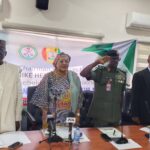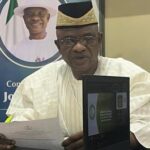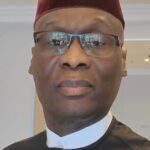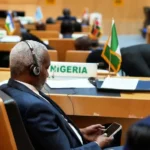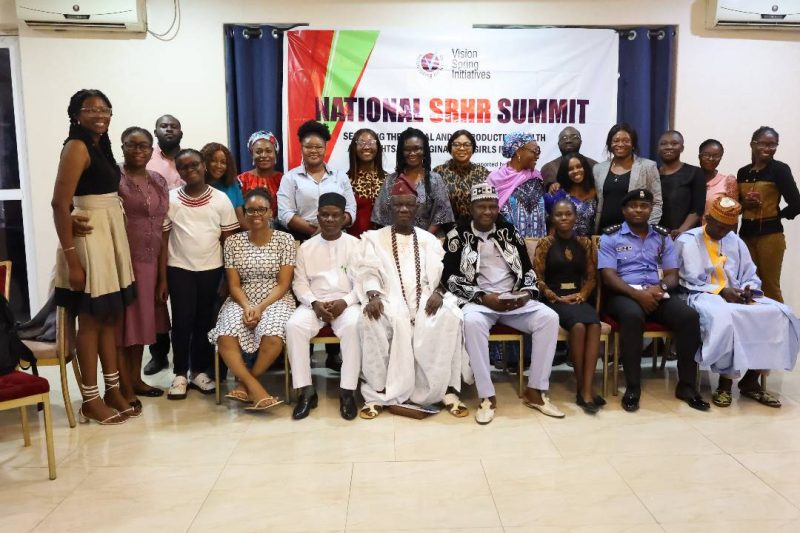By Justina Auta
Stakeholders have called for effective implementation of anti-discriminatory laws and improved access to services to protect the Sexual and Reproductive Health Rights (SRHR) of marginalised women and girls, especially those with disabilities.
They made the call at a meeting on Thursday on “Securing the SRHR of Marginalised Girls in Nigeria”, organised by an NGO, Vision Spring Initiatives (VSI), in partnership with HIVOS under the “We Lead” project in Abuja.
The stakeholders concluded that discrimination and stigmatisation limit access to essential healthcare services
and SRHR for marginalised groups, young women living with HIV, people living with disabilities, and those affected by displacement.
Ms Adenike Fabusuyi, a Health Educator and woman with disability, decried the attitude and poor access to healthcare many of her colleagues had to live with.
She revealed some of the experiences people living with disabilities go through at healthcare facilities when they go for reproductive services.
She said that whenever they visited a healthcare facility to access reproductive health services or requested for contraceptives, some workers would look at them from head to toe and say “should someone like you even have sex?
“I mean, we are not seen as social beings just because we are living with one form of disability.”
Mrs Ngozi Nwosu-Juba, the Project Director of VSI, urged government, especially at the state level, to establish structures that were accessible to Persons with Disabilities (PWDs).
Nwosu-Jpuba also stressed the need for attitudinal change among healthcare providers to ensure conducive and non-judgmental environment for vulnerable women and girls that hinder them from accessing information and quality healthcare.
She said structure in place does not mean just service, but also making where they can receive services. “There is also the need to ensure that health workers are trained to be human-friendly; there should be a social aspect of having empathy to responding to persons with disabilities.”
She called for more collaboration and commitment toward advocating for comprehensive SRHR for marginalised women and girls.
Ms Fisayo Owoyemi, Community of Action Facilitator, We Lead Nigeria, said the country must formulate anti discriminatory laws that protects PWDs, women and girls living with HIV and the displaced.
She said “there should be laws and policies that protect these women from discrimination so that when they experience those violations based on their identity, they are able to seek redress.”
On her part, Dr Atinuke Duze, A Public Health Specialist, Ogun State Ministry of Health, said incorporating social medicine in the curriculum of medical and health professionals would enable them to attend to disabled and vulnerable citizens professionally.
She added that “for every healthcare worker to personally improve themselves in areas of social medicine, add empathy and separate personal belief, religious belief, moral standing from the core professionalism.
“Healthcare workers should know that the rights of every person, particularly the marginalised, can be addressed
and when they get to them, they must be able to solve their needs, rather than adding to their problems.”
Also, Mrs Dorothy Nuhu-Aken’Ova, an Advocate for Inclusion, said it is fundamental for the Nigerian society to adopt the indices of inclusivity in intervention and policies in all sectors for holistic and sustainable development.
She stressed the need for increased information about inclusivity, saying “everyone has equal rights, regardless of their peculiarity, whether they are abled body or have disabilities; there is need to carry everyone along, leaving no one behind.”
The News Agency of Nigeria (NAN) reports that the meeting had a cross section of stakeholders, including traditional leaders, representatives of human rights organisations and security agencies.
They signed a commitment board to represent the collective responsibility, support and advocacies of prioritising
SRHR agenda address the specific needs of marginalised girls. (NAN)(www.nannews.ng)
=============
Edited by Hadiza Mohammed-Aliyu

